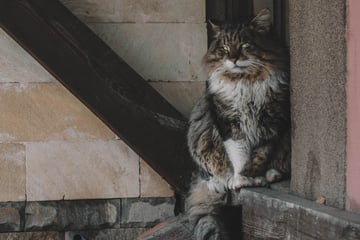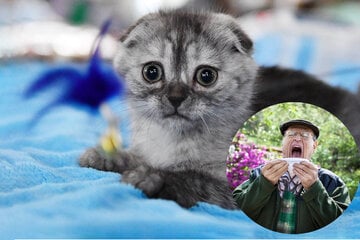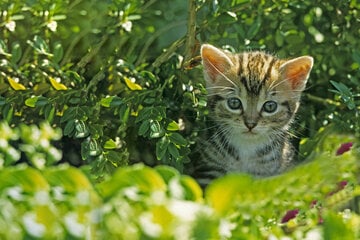What plants are poisonous to cats?
You may have noticed that your beloved feline friend loves to give plants a good nibble from time to time. Some of them, though, might be very bad for it. So, which plants are poisonous to cats?
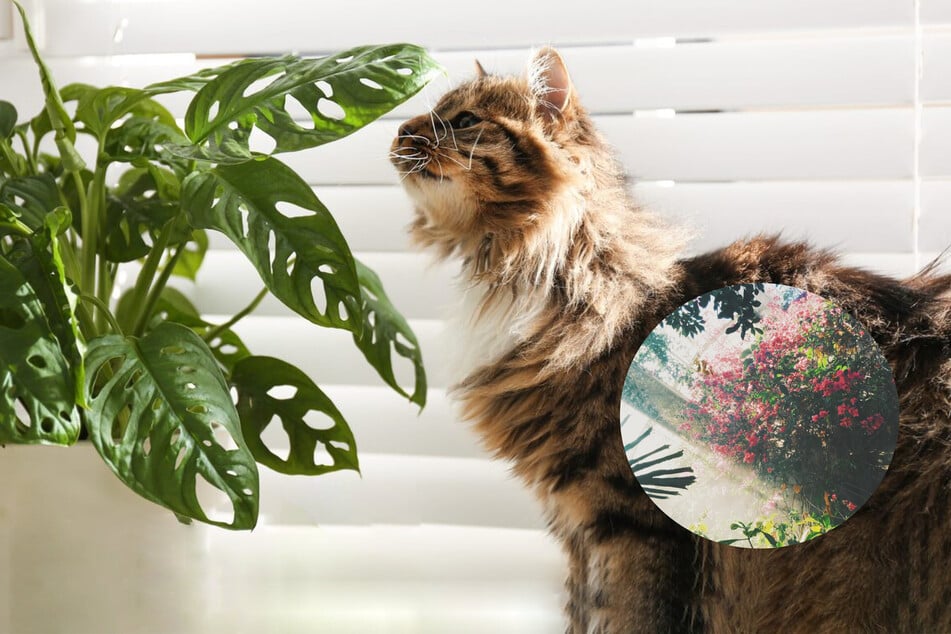
Cat people are often fans of nature, the great outdoors and, even more commonly, plants.
The problem, though, is that kitties don't have the same smarts or sense of self-preservation we do, and they'll nibble on things that'll make them sick. As a result, a cat owner's choice of plant needs to be careful, and we're here to help with that.
In this cat guide, TAG24 takes a look at plants that are poisonous to cats. Is your monstera dangerous to your cat? What about your aloe vera? Here's everything you need to know!
Why are cats allergic to some plants?
Common household plants generally come from all over the world. The monstera, for example, is a Central and South American plant that can now be found in many people's living rooms and back gardens. While this diversity is, of course, a wonderful thing, it does come with its challenges: Namely, some plants are poisonous to our beloved pets.
In much the same way as humans get allergic to certain things, pollen, needles, flowers, leaves, sap, and even seeds can all be potentially toxic if ingested by a cat. The danger is that many of these things can infect a cat without being deliberately consumed - for example, if toxic pollen got on their paw and they cleaned it!
Many plants have certain ingredients that are harmful to cats, too. For example, monsteras have bitterns, calcium oxalate, ethanedioic acid, and resorcinol, all of which are highly toxic to a cat.
List of plants poisonous to cats
There are many, many plants that are poisonous to cats. The reactions you can expect vary from mild to extreme and, in some places, deadly. As such, it is recommended that you avoid keeping any of these leafy loafers in your home.
Here are some of the most poisonous plants for cats:
- Asian lily
- Hydrangea
- Bird of paradise
- Climbing lily
- Lily of the valley (pretty much any Lily, to be honest)
- Daffodil
- Asparagus fern
- Aloe vera
- Morning glory
- Nightshade
- Crown of thorns
- Monstera
- Snake plant
Please keep in mind that this is by no means a definitive list. Indeed, if you want a more exhaustive and complete list of plants that are poisonous to cats, check out this resource from Purina.
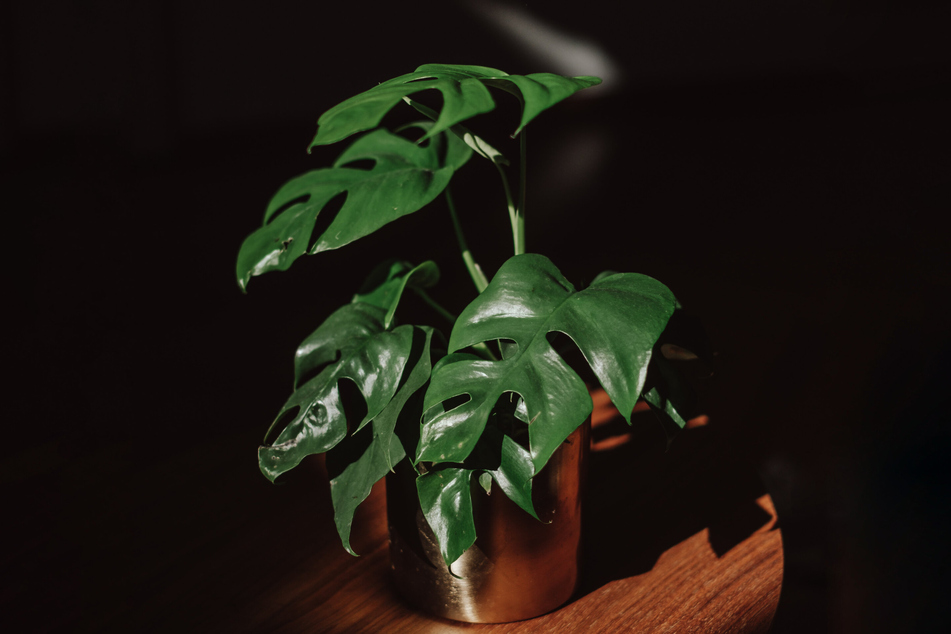
Are monsteras poisonous to cats?
As we established earlier, monstera contains a number of different chemicals that are terribly poisonous for cats. As a result, it is best to keep no monsteras around the house, as cats can get extremely sick if they consume any part of this plant, whether it be a leaf or a twig.
Some symptoms of monstera poisoning in cats include the following:
- Vomiting
- Extreme salivation
- Diarrhea
- Trembling
- Convulsions
- Shortness of breath
- Bleeding
- Difficulty swallowing
Watch out: Symptoms of monstera poisoning appear relatively quickly after consumption, and their severity depends on the quantity that your kitty has consumed.
Are spider plants poisonous to cats?
According to the American Society for the Prevention of Cruelty to Animals (ASPCA), spider-plants are not poisonous for cats or dogs. They will, however, cause mild gastrointestinal irritation. In other words, your cat won't be at any risk from the consumption of spider plants, but they may have a sore and slightly uncomfortable stomach for a few hours afterward.
Are snake plants poisonous to cats?
Snake plants are severely toxic to both dogs and cats, per the ASPCA. It is recommended that you call the Animal Poison Control Center (APCC) at (888) 426-4435 or your local veterinarian if you suspect that your pet has consumed some of this dangerous plant. Symptoms of poisoning include nausea, vomiting, and diarrhea.
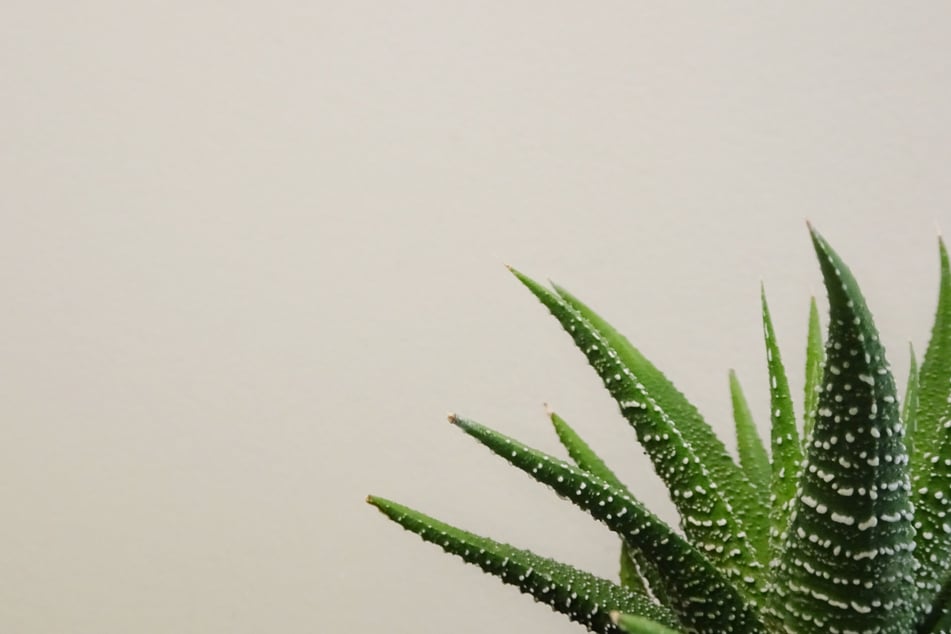
Are aloe vera plants poisonous to cats?
Causing similar symptoms to both snake plants and monsteras, aloe vera is a very toxic substance to cats and dogs alike. According to the ASPCA, the aloe vera uses saponins and anthraquinones which attack some animals, and it can be lethal in high doses. As a result, be not only careful with the plants, but with any hand gels or soaps that you may have as well. Try to avoid aloe vera products in a house with pets.
What to do if your cat eats a poisonous plant
Any situation that involves a cat or dog's consumption of poisonous plants or substances should be taken very seriously. If your kitty has consumed a poisonous plant, you need to get immediately in touch with your veterinarian (or the APCC) and describe what it has eaten, how much, and what symptoms it is exhibiting.
In many cases, this will require a trip to the vet, as bad poisonings can easily turn fatal if not treated properly. Make sure that your cat is kept comfortable and within your sight, and monitor its symptoms very closely until you get your feline friend some medical treatment. Whatever you do, don't panic, as this won't help anyone!
How to keep your cat away from poisonous house plants
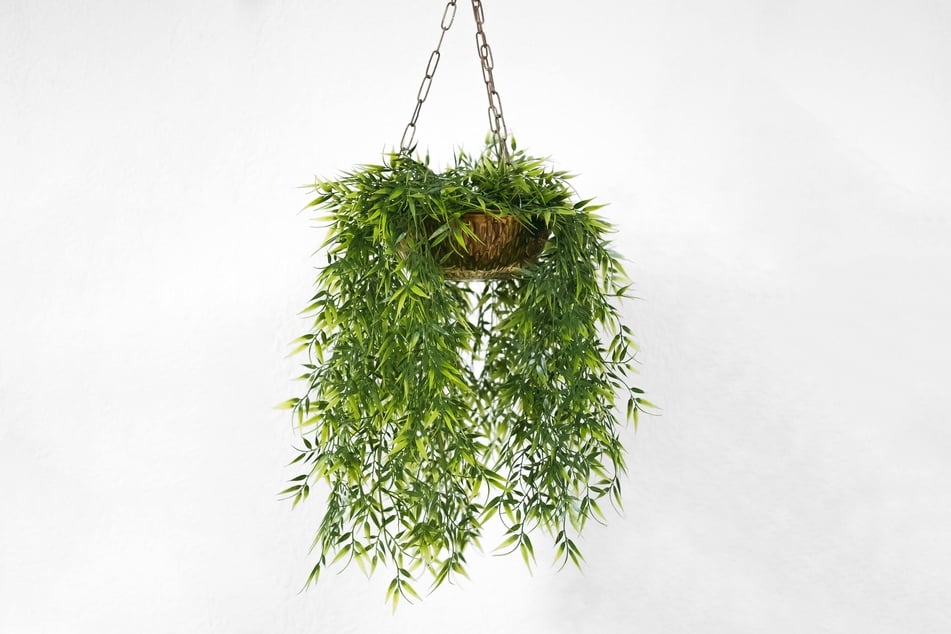
The best way to avoid your cat being poisoned by houseplants is to only buy cat-friendly and cat-safe plants. There is ultimately no way for you to stop them nibbling every now-and-again. You would have to constantly watch them like a hawk, so it's just not realistic.
If you need to have certain plants around, though, there are a few precautions that you can take:
Tip 1: Hanging pots
Make sure that you put your potentially worrisome plants well out of reach. As cats can jump extremely well, it's a good idea to use hanging pots for poisonous plants. This will stop them from jumping onto the pot as it will swing if they try to do so, just make sure that none of the leaves or petals are within reach.
Tip 2: Coffee grinds
Cats don't like coffee, and will stay away from a plant that is surrounded by coffee grinds. A good idea is to sprinkle coffee grinds onto the soil - this will have positive fertilizing effects on the plant itself, and will repel your kitty.
Tip 3: Peppermint oil
Peppermint oil is also something that cats can't stand the smell with. The oil is safe for cats, so won't present a risk in itself, and can be sprinkled or sprayed onto your plant. If you use a spray bottle and give it a nice misting of peppermint, your cat will be sure to keep away.
Please note: Some sources may indicate that tea tree oil is a good deterrent, as cats hate the smell. You must never use tea tree oil as a deterrent, as it is highly toxic to cats.
There are plenty of safe plants for cats, so you have options
From the various types of cat grass, to herbs that they can munch on, there are plenty of perfectly safe plants to keep in your cat-inhabited home. In other words, while certain plants might be beautiful, and rather desirable, there are plenty of alternatives to choose from, and you shouldn't put your kitty at risk.
It is true that you can take steps to prevent your cat from nibbling potentially harmful plants, but the ultimate remedy is to simply guarantee a poison-free environment for your feline friend.
Cover photo: 123rf / Liudmilachernetska & Florian GIORGIO / Unsplash (TAG24 Edit)
